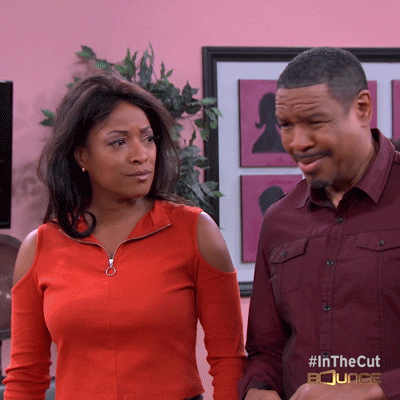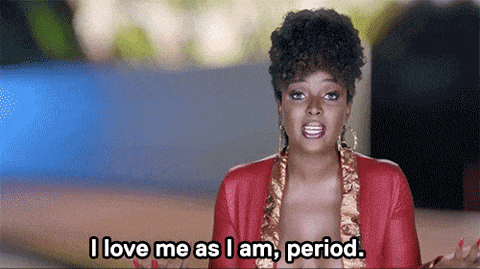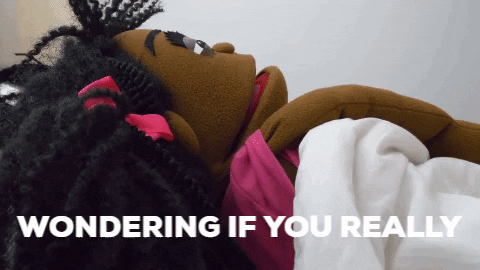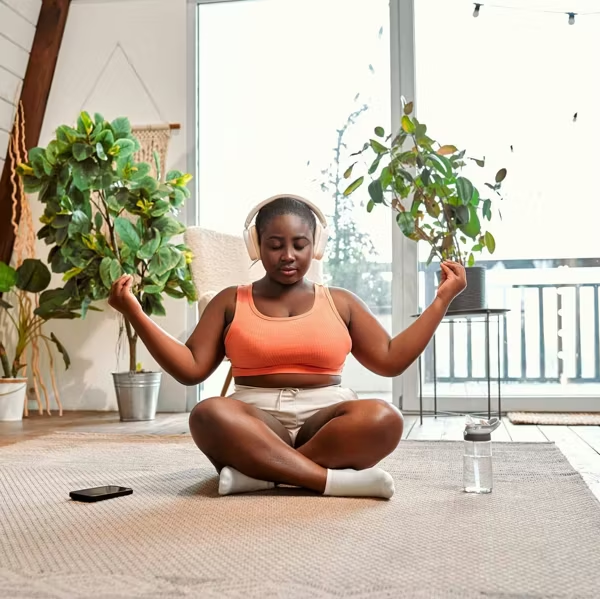I grew up with a mother who was good for writing a letter—or 2 or 10. This was especially the case as I got older, there was a breakdown in communication, and she wanted to make sure she was heard and/or she wanted to clarify a few things and/or sometimes, she even wanted to apologize. Between that being a part of my upbringing and my being an avid reader and writer from an early age, letter writing has continued to be a part of my life and lifestyle. Ask anyone who's close to me—or who I've released before—and they'll tell you that it's nothing for them to receive a letter—or 2 or 10—from me. It's such a powerful way to process, purge and even cleanse in some ways.
I got the confirmation on this several years ago, when I penned a spiritual letter of sorts to single women. Whenever a woman reaches out to me who feels as if she's at her wit's end (romantically speaking), I email it to her. It's been really humbling to see the kind of peace and "Ohh…so that's what this has all been about" insight that it provides. And the beauty of it is, since it's a letter, she can always refer back to it (another plus of sharing your thoughts and feelings via writing rather than simply having a conversation; it's documented). Yeah, letter writing is an underrated superpower. It really is.
That's why I am a huge fan and avid encourager of women writing love letters. No, not to other people (although that's cool too)—to themselves. If the first thing that comes to your mind is that it sounds odd, feels awkward or even leans on the side of vanity, I'm hoping that in 3-5 minutes (give or take), I'll totally be able to change your mind.
There Are Proven Psychological Benefits to Writing Things Down

Did you know that if you write your goals down, there's a far greater chance that you'll achieve them? There's an article that ran in Forbes that said this is actually proven in neuroscience. It claims that jotting things down taps into your "external storage" (it's a visual reminder) and your "encoding" (the biological processing by which decisions are made). So already, can you see that if you write yourself a love letter, it will serve as a visual reminder while also helping you to make decisions that are centered around self-love?
Also, there are other psychological benefits that come from writing things down. Writing things down helps you to express your emotions. Writing things down brings forth clarity. Writing things down can also help you to see how much progress you've made over time as you go from one level of thinking to another.
So yeah, before going any further, this point alone should be enough of a reason to pull out a pen and piece of paper, don't you think?
You Need to Document How You Feel About Yourself

Sometimes, when a woman writes me about all of the things she hates about her life, I'll ask her to shoot me 10 things that she likes about herself and 10 things that she totally dislikes. 9 times out of 10, it never fails. While she can easily rattle off all of things that she loathes, she struggles with sharing even five things that she loves. Although you might want to automatically chalk that up to her having low self-esteem or a lack of self-awareness, while there may be some truth to that, the reality is that all of our brains come with an automatic negative bias. Researchers are looking into all of the reasons why, but a part of it is due to what we expose ourselves to on a daily basis, both inside and out.
Anyway, I'm bringing this up because between all of the political drama, gossip blogs and vlogs and Instagram filters that we're exposed to on the regular, it can be really easy to become extremely cynical and hard on yourself. One way to counter that is to "reprogram your mind" by focusing on positive stuff. A great starting point is to hone in on specific things about yourself that are good, healthy and affirming.
Since it's so easy to talk about what you don't like about yourself, why not go out of your comfort zone and write down some of the things that you actually do?
It’s a Great Reference Point for the Not-Feeling-Your-Best-Days

You wake up 15 minutes late. The outfit that you want to wear decides to fit you funny. You leave your car lights on overnight. When you finally do get to work, you forgot all about the staff meeting you were supposed to lead. Then you get a text from your man that totally pisses you off and a voicemail from your mom that totally leaves you baffled. You order your lunch and it's all wrong. The day just sucks. Sucks, I say.
When you wake up on the wrong side of the bed and it has a domino effect, not only does that have a tendency to drain your energy, it can make you feel all kinds of bad about everything that's transpiring; including when you look into the mirror and it's a bad hair day on top of everything else. Something that can calm and center you is a self-written love letter. It can remind you of all of the things that you've got going right within when it seems like life, at least for today, is all wrong.
It Sets the Standard of What to Require of Others

Now that we've gotten a few reasons down for why you should be all for writing a love letter to yourself, you might be thinking, "OK Shellie, but how do I actually go about doing that?" That's where this point comes in. Although you could hash out an email, I think getting some pretty stationary and writing all of what you have to say in your own handwriting is far more impacting. Think about what you love about you—both inside and out. Think about what you are deserving of. Think about what sets you apart from everyone else on this planet. Reflect on the standards and boundaries that must be put into place in honor of the love that you have for you. Tell yourself why you are going to nurture and pamper yourself without reservation or apology more often. Write down all of the reasons why someone should feel honored to have you and why you will wait until that kind of individual comes along.
I promise you, once your letter is complete, it will automatically put a fire in you that will not only inspire you to love yourself, it will require others to respect and esteem you to the utmost as well. Yep, writing yourself a love letter will change your life and the way people in your life treat you. Guaranteed.
It Holds You Accountable to What Love Means to Yourself

A lot of us struggle with doing an exercise like this because 1) we don't even know what it means to love ourselves and 2) we definitely don't hold ourselves accountable to doing it. Yet ironically, that's the main point and purpose of writing ourselves a love letter. A letter is a written form of communication. As you're exploring in your mind what self-love means to you and you're putting those words down, it can define love in a way that is distinctive; a way that resonates with you like nothing else can because no one knows you quite like you do.
Then, once the letter is written and either mailed to you (why not? That way you can get more than a bill), posted on your fridge or blown up and hung over your bed, you can read what you said, over and over again, making sure that if no one else loves you right and well, you will. Daily.
So, what are you waiting for? Pull out a bottle of wine, a pen and stationery and get to writing. If something profound comes to mind (and I'm pretty sure that it will), put a line or two in the comment section.
Everyone deserves at least one love letter in life. Especially one that they've written—to themselves.
Want more stories like this? Sign up for our newsletter here and check out the related reads below:
What It Means To Find True Self-Love
Jada Pinkett-Smith Wants You To Chill With The Negative Self-Talk
How Pursuing God Taught Me Self-Love
Feeling Yourself Is The Vital Step To Finding The Love Of Your Life
Feature image by Shutterstock
Originally published on September 7, 2019
- How To Write A Letter To Your Future Husband & Attract Your ... ›
- Why Writing Love Letters Is A Surefire Way To Revive Your Marriage - xoNecole: Women's Interest, Love, Wellness, Beauty ›
- Why I Couldn't Write a Love Letter to Myself Without Feeling Shame ... ›
- Writing a Love Letter to Myself for 30 days ›
- write a love letter to yourself | Gemma Stone ›
- What would you write in a love letter to yourself? ›
- What Every Woman Needs to Write: A Love Letter to Myself | HuffPost ›
- How (and why) to write a love letter to yourself | MNN - Mother ... ›
- A Love Letter To Myself ›
- How to Write a Love Letter to Yourself | Bella Grace Magazine ›
- Wellness Activity: Write Yourself a Love Letter! — At The Well ›



























